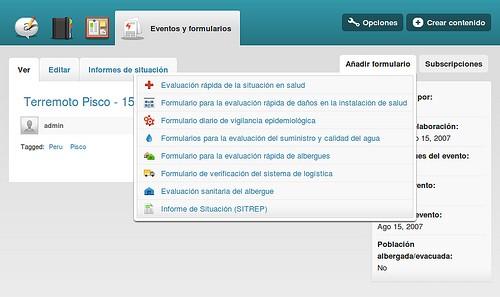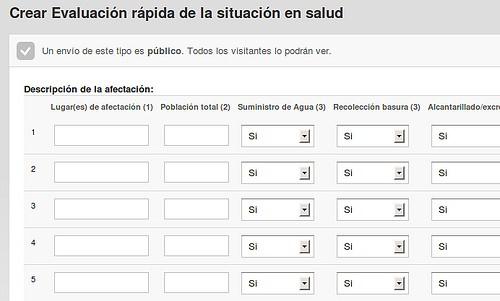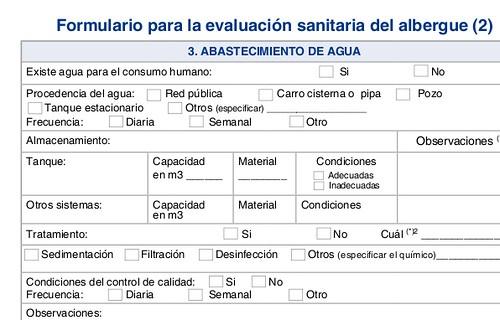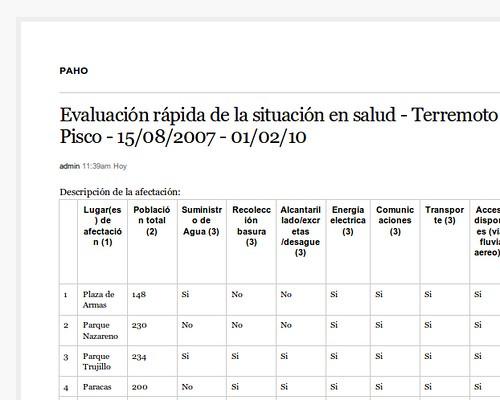We just deployed a custom micro-distribution of Open Atrium for the Pan American Health Organization’s (PAHO) Emergency Operations Center network, the World Health Organization’s main arm in the region. This Spanish-only package ships with custom features designed to help field offices collect data and produce reports for centralized regional offices and PAHO headquarters during emergencies. Each Emergency Operations Center (which are run out of every Central American country) can now set up its own Open Atrium site and, when there is an emergency, fill out these reports to improve the speed of data collection.
This distro is focused around one big feature consisting of eight data collection forms, a simple workflow for producing and viewing reports, and a reporting interface to view lists of submitted forms and export them to CSV or a print-friendly page. The main form is used to create an “event,” which is the disaster or crisis itself, to which any number of seven other data collection forms can be filled out and related to.

The data collection forms in PAHO’s custom Open Atrium distro for disaster response.
The data collection forms are used to assess damages to and the availability of services in health institutions in affected regions, report water quality, shelter availability, and health conditions on the ground, and give an overall situation report like this one in PAHO’s “Area on Emergency Preparedness and Disaster Relief” section of their website.
This feature is meant to be used in a distributed way, whereby a country’s Emergency Operations Center team installs a custom distribution of Open Atrium on a local office web server. The feature is then used to organize the local team’s data collection and make it easy to get the data out of the system and sent to the central regional Emergency Operations Center or to headquarters.

Example of one of the online data collection forms in the distro.
Before the local teams would collect data on PDF forms, like this one. Bringing this data collection online facilitates collection for local teams and makes analyzing it significantly easier for regional centers and PAHO’s headquarters.

PDF form that was the primary way for PAHO to collect and submit data.
Since this tool is designed to be used for disaster response, it was important to think about technical capacity during a crisis and how Open Atrium could still be leveraged in situations where electricity or an internet connection wasn’t available. Assuming that the server can be powered a generator, we built the feature so reports can be exported to CSV or print and then transmitted via a temporary fax machine or email through a mobile device when an internet connection is not available.

Print friendly look at a data collection form.
This distro is in Spanish and therefore uses Open Atrium’s translation server. Local offices can download updates to Open Atrium’s Spanish translation from the translation server when they become available, and in cases where there is no internet when the distro is first installed, the custom distribution ships with a file that translates the interface to Spanish upon installation.
Additionally, PAHO plans to set up another Open Atrium site to support the custom disaster response distro and provide instructions and documentation to help users adopt the system.
What we're doing.
Latest